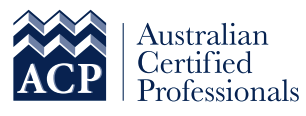Super Amnesty Ends on 7 Sept 2020
Alan Law • August 21, 2020
If you are late for superannuation guarantee payments, this is your last chance.
The superannuation guarantee (SG) amnesty is your chance to catch up on unpaid super without incurring penalties or paying administration fees.
This is your last chance to apply for the amnesty as it ends on 7 September 2020. So, if you want to participate in the amnesty, you must apply to the ATO by 7 September 2020.
Once you've applied, the ATO will advise you within 14 days which quarters are eligible for the amnesty. The ATO will also give you a payment reference number (PRN) to make amnesty payments.
Any amnesty amounts you pay before 7 September 2020 are tax deductible.
The Payment Reference Number (PRN) can be obtained:
- From a super guarantee charge related statement the ATO sent you for the same ABN
- You can request it through the Business Portal
- Or contact the ATO helpline on 1800 815 886 between 8.00am and 6.00pm Monday to Friday
- Alternatively, you can contact your accountants, or contact ACP Accountants - Sydney's leading business accountants.
Remember, you will need to pay in full or set up a payment plan to continue qualifying for the benefits of the amnesty.

If you employ staff, here are the important dates and obligations to remember throughout the year, to set yourself up for success. Super guarantee (SG) 28 January, 28 April, 28 July, and 28 October are the quarterly due dates for making SG payments. The SG rate is currently 11.5% of an employee’s ordinary time earnings. From 1 July 2025, the SG rate will increase to 12%. Ensure SG for your eligible employees is paid in full, on time and to the right super fund. If you don’t, you'll need to lodge a super guarantee charge (SGC) statement and pay the SGC to the ATO. Fringe benefits tax (FBT) 31 March 2025 marks the end of the 2024–25 FBT year. There are 4 key steps to nail your obligations for FBT tax time. Identify if you've provided a fringe benefit. Determine the taxable value to work out if you have an FBT liability. Lodge an FBT return and pay any FBT owed (if you have a liability) by 21 May 2025. If your registered tax agent lodges electronically for you, you have until 25 June 2025. Keep the right records to support your FBT position. Pay as you go (PAYG) withholding You need to withhold the right amount of tax from payments you make to your employees and other payees, and pay those amounts to the ATO. This helps your employees meet their end-of-year tax liabilities. Your accounting or payroll software, the ATO tax tables or online tax withheld calculator will help you do this. Single touch payroll (STP) Fina lize your STP data by 14 July 2025 for the 2024–25 year. This ensures your employees have the right information they need to lodge their income tax returns. If you have any closely held payees, you may have a later due date for those payees only. Remember to finalize all employees you’ve paid in the financial year. ACP Accountants are leading Sydney accountants and tax specialists. Please call us today on 02-8046 7621 if you need our help.

With the holiday season kicking off, you may be planning a celebration with your staff. Consider if fringe benefits tax (FBT) may apply or you could end up with an unexpected FBT liability. Before you hire a restaurant or book an event, make sure you work out if the benefits you provide your employees are considered entertainment related and if they’ll attract fringe benefits tax (FBT). This will depend on: the amount you spend on each employee when and where your celebration is held who attends - is it just employees? Or are partners, clients and suppliers also invited? the value and type of gifts you provide If you do provide entertainment-related fringe benefits, keep the right records to support this so you can calculate their taxable value. It's important to get on top of how FBT works before you provide perks and extras. Otherwise, you may end up with an unexpected FBT liability. For more information, please contact your Sydney business accountants – ACP Accountants on 02-80467621, or simply get in touch and email us at info@acpaccountants.net.au.

One of the many responsibilities SMSF trustees have every income year is valuing your fund's asset at market value. Each year you need to value your SMSFs assets and provide supporting evidence to your auditor. The market value of an asset is the amount that a willing buyer and seller would agree to in an arms-length transaction. These valuations will be used when preparing your fund's accounts, statements and SMSF annual return (SAR). Your asset valuations will be reviewed by your approved SMSF auditor as part of the annual audit prior to lodgment of your SAR. Your auditor will check that assets have been valued correctly, assess and document whether the basis for the valuations is appropriate given the nature of the asset. They are not responsible for valuing fund assets. Make sure you get your valuations done before going to your auditor. It's your responsibility to provide objective and supportable evidence to your auditor for the valuation of the fund's assets, including all relevant documents requested to prevent delays in auditing the fund. Failure to do so could result in a potential late lodgment of your annual return or a contravention if mistakes have been made. Start researching now to find what type of evidence your need to support the valuation as this can take time. For some asset types the law requires valuations to be undertaken by a qualified independent valuer. For further information, please contact Sydney Business Accountants – ACP Accountants on 02-80467621, or simply email us at info@acpaccountants.net.au.
